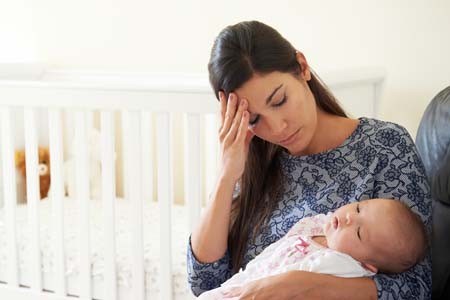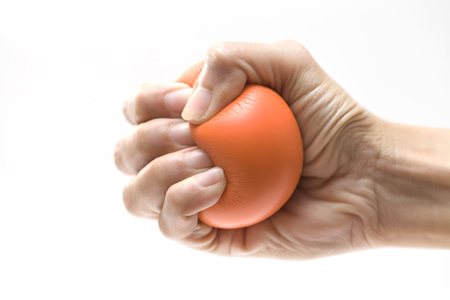Allopregnanolone Injection Eliminated Post-Partum Depression in Four Women
In a small proof-of-concept study, researcher Stephen J. Kanes and colleagues showed that injections of allopregnanolone could nearly eliminate symptoms of post-partum depression.
Allopregnanolone is the main metabolite of the hormone progesterone. Rapid changes in hormone levels following delivery are thought to cause post-partum depression.
In the study, four women with post-partum depression were given injections of SAGE-547, a proprietary solution of allopregnanolone. The dose was adjusted over 12 hours until it approximated prenatal levels of allopregnanolone. This level was maintained for 36 hours, and then the women were weaned off the SAGE-547 over another 12 hours. As soon as the women began injections of SAGE-547, their depression began to improve, and this lasted after they stopped receiving the injections. By 84 hours after beginning treatment, depression scores had improved by 81%.
Kanes and colleagues, who presented this research at the 2016 meeting of the Society of Biological Psychiatry, will follow up this study with placebo-controlled trials of SAGE-547.
Exposure to Stress Hormone Leads to Poor Decision-Making
Adolescence may be a period of particular vulnerability to the effects of stress. New research by Shannon Gourley indicates a possible mechanism for this vulnerability. When Gourley exposed adolescent mice to low levels of the stress hormone corticosterone (the equivalent to human cortisol), they developed habit-based rather than goal-oriented decision-making, leading to behaviors that resembled human depression, which lasted into adulthood. Adult mice that were exposed to the low levels of corticosterone were not affected by it.
Gourley also used an alternative method of producing these stress responses a second time by silencing the trkB receptor for brain-derived neurotrophic factor (BDNF) in the amygdala and hippocampus of the mice. The depression-like behaviors that resulted, such as lack of motivation, were able to be reversed by treating the mice with 7,8-dihydroxyflavone, a drug that activated the trkB receptor. In the adolescent mice, this treatment had antidepressant effects that lasted into adulthood, even though the treatment stopped earlier.



